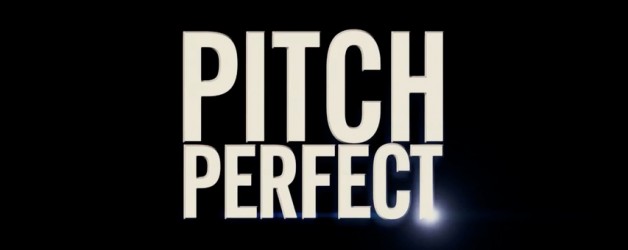Before we dive in, this list has nothing to do with making your script better. It’s not about the craft of screenwriting… its about selling. That’s right… selling. Last place, a set of stake knives.
1) Can you pitch it?
Sounds simple, right? Wrong. You have a screenplay. You’ve worked hard on your script (this applies equally to a script you may have optioned or own or wrote) and want to sell. Regardless, you have a script in your hands. At some point, you’re going to have to pitch the script. Verbally.
Like a first impression, you only have one shot at getting it right. So make sure you have your pitch down packed. Make sure you’ve reheased it. Make sure you’ve practiced it – OUT LOUD – in front of friends. Co-workers. Colleagues. Your waiter or waitress “hey, do you have a second? Can I tell you a pitch for my movie?”.
Strangers are great. You don’t know them. They don’t know you. If you can get the pitch out cleanly in front of a stranger, then you’re ready to start selling.
2) Get Primal?
Pitching is a visceral thing. A good pitch is hard. Why? Because you want to evoke some kind of an emotional response.
Curiosity is a great one. A good pitch will leave your audience asking, “what happens next?”
You want to get primal with your pitch. Make a connection. And always leave them wanting more.
3) More isn’t better
Ever hear that pitch where they start at page one and take you through to page 110? You know that one, right? Bores your to death.
Why, because telling a story isn’t about each and every plot point in the moive. When you are pitching and selling your script, you’re connecting with ideas. Big concepts. And to be clear, that doesn’t mean “high concept”. It just means that you need to find a way to tell your story without boring your audience.
There’s always time to go back and tell your characters back-story. Or little nuances and plot points that make your script/story great. But when you are selling your script, you are selling an idea.
You don’t need to give them every page of your script verbally. The points is, you want whomever you are pitching to read the script. So just give them enough to make sure they crack the first page. After that, the script can do the work. You’ve done yours.
4) Your pitch is your structure
There’s a difference between the way you pitch and the way your script reads. Ultimately, they should be the same. If they are not, then that may identify a problem in your structure that’s worth taking a closer look at.
A funny thing happens when you articulate the written word. People have a natural tendency to want to tell the best possibly story out loud. You will find, most likely, that you naturally discard the points of the story that are the least interesting and gravitate to the parts that are the most interesting.
Your protganist is trying to accomplish something. The very question, “what is my protoganist trying to accomplish?” should be your break into act 2 in a well structured story.
And, when someone asks you what the story is about, you’ll want to tell them it’s a person who — blank — and must blank — BUT…
…if you are pitching your story and find yourself talking about something that doesn’t happen structurally until page 40 in your script, maybe you have a problem. Maybe the act of vocalizing the pitch is telling you that you aren’t ready to pitch it.
Related link: The Art of the Pitch

5) Be clear
Pitching can get very very confusing. If you’re in the position of always “doing” the pitching, try and find a way to get others to pitch you their concepts.
When you listen to pitches, you’ll find out quickly that people tend to meandor. Or they aren’t clear about what the story is about. Your job is to be clear. Because if you can’t clearly spell out what the movie is about, and quickly, then odds are the script doesn’t do it better.
Sometime you’ll read a script and go, “wow, that’s great”, but when you try to turn around and tell that same story back to someone else, you find out that it wasn’t as clear as you thought it was. Good writing can sometime get in the way of a good script. That is to say, a well written script isn’t necessarily a good script. Usually, this comes down to structure and character and a host of other reasons. Even well written scripts, when you pitch them, just come out funny.
So make sure that your script doesn’t suffer from that. Make sure that your script is clear, in the pitch.
6) Understand your mission
Your job isn’t to sell the script. Only the script can sell the script. A bad script is a bad script is a bad script. If the script sucks, it’s not going to have a chance.
But, the script won’t even get the chance if the pitch sucks. So understand the mission, to get your reader to crack the script. Get them to want to read it.
7) Pitching is a skill, practice it
At some point, even if you think you “suck” at pitching, you’ll be in a position where you have to pitch it.
So, don’t let this be the first time you’ve said your pitch out loud. Don’t let yourself get into this position. Take the time before you ever send your script out to practice the above. Because, even if your intention to never pitch it verbally, you’ll end up in an elevator, or on the phone, or standing next to someone that will ask you, “so, what’s it about?”
Be prepared. Practice. Have fun.
Now play!
Other posters you may enjoy:
10 Tips for Indie Filmmakers on Twitter
3 Way to Help You Create More
Skip the Longtail of Indie Films
If you enjoyed this article, get email updates (it’s free)

